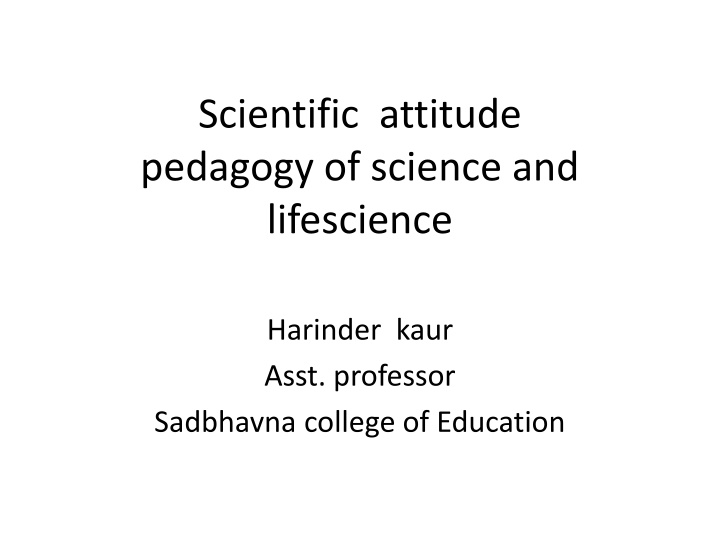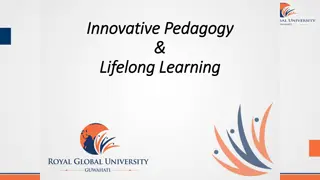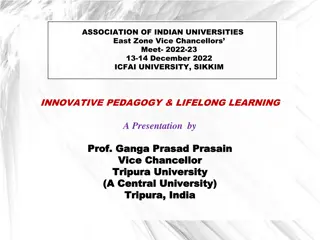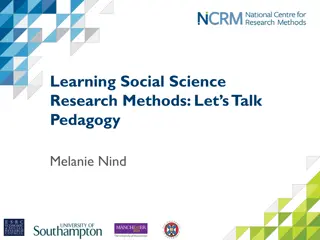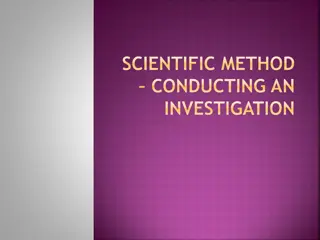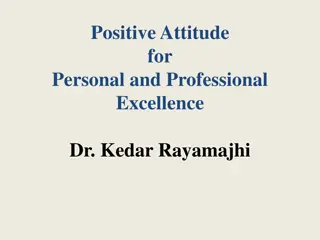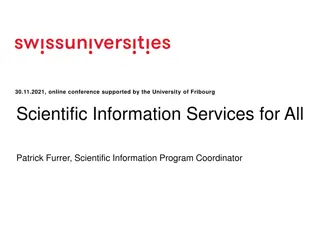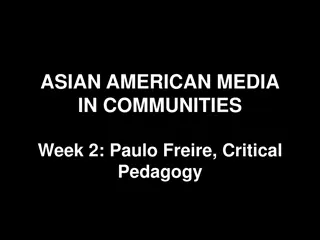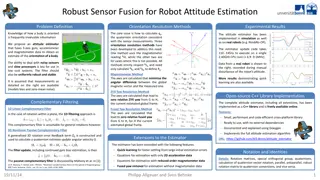Scientific Attitude and Pedagogy of Science
Scientific attitude involves open-mindedness, curiosity, rationality, and a desire for accurate knowledge. It includes characteristics such as critical thinking, respect for diverse viewpoints, and a reliance on verified information. Developing a scientific attitude involves studying superstitions, promoting critical analysis, utilizing scientific literature, and creating conducive learning environments.
Download Presentation

Please find below an Image/Link to download the presentation.
The content on the website is provided AS IS for your information and personal use only. It may not be sold, licensed, or shared on other websites without obtaining consent from the author.If you encounter any issues during the download, it is possible that the publisher has removed the file from their server.
You are allowed to download the files provided on this website for personal or commercial use, subject to the condition that they are used lawfully. All files are the property of their respective owners.
The content on the website is provided AS IS for your information and personal use only. It may not be sold, licensed, or shared on other websites without obtaining consent from the author.
E N D
Presentation Transcript
Scientific attitude pedagogy of science and lifescience Harinder kaur Asst. professor Sadbhavna college of Education
Scientific attitude Definition: Scientific attitude can be defined as, open mindedness, a desire for accurate knowledge, confidence in procedures for seeking knowledge and the expectation that the solution of the problem will come through the use of verified knowledge .
characteristics of scientific attitude A man with scientific attitude has : i. is critical in observation and thought, ii. respects other s point of views and is ready to change his decision on presentation of new and convincing evidence, iii. is curious to know more about the things around him wants to know whys, what s and how s of things he observes, iv. does not believe in superstitions and false beliefs , v. suspends judgments until suitable support is obtained, vi. believes in cause and effect relationship, vii. accepts no conclusions as final or ultimate, viii. seeks to adopt various techniques and procedures to solve the problem and ix. seeks the facts and avoids exaggeration.
Dimensions of scientific attitude rationality, open mindedness, curiosity, aversion to superstition, objectivity of intellectual beliefs suspended judgment
Techniques of developing scientific attitude Study of superstitions and analysis of wrong beliefs Planning exercises Make use of scientific literature Effective use of laboratory period Inclusion of co-curricular activities in science programme. Developing appropriate classroom atmosphere. Using personal examples.
